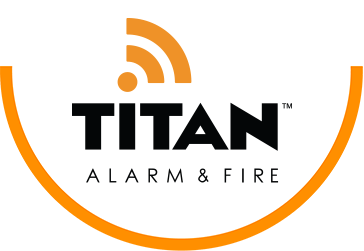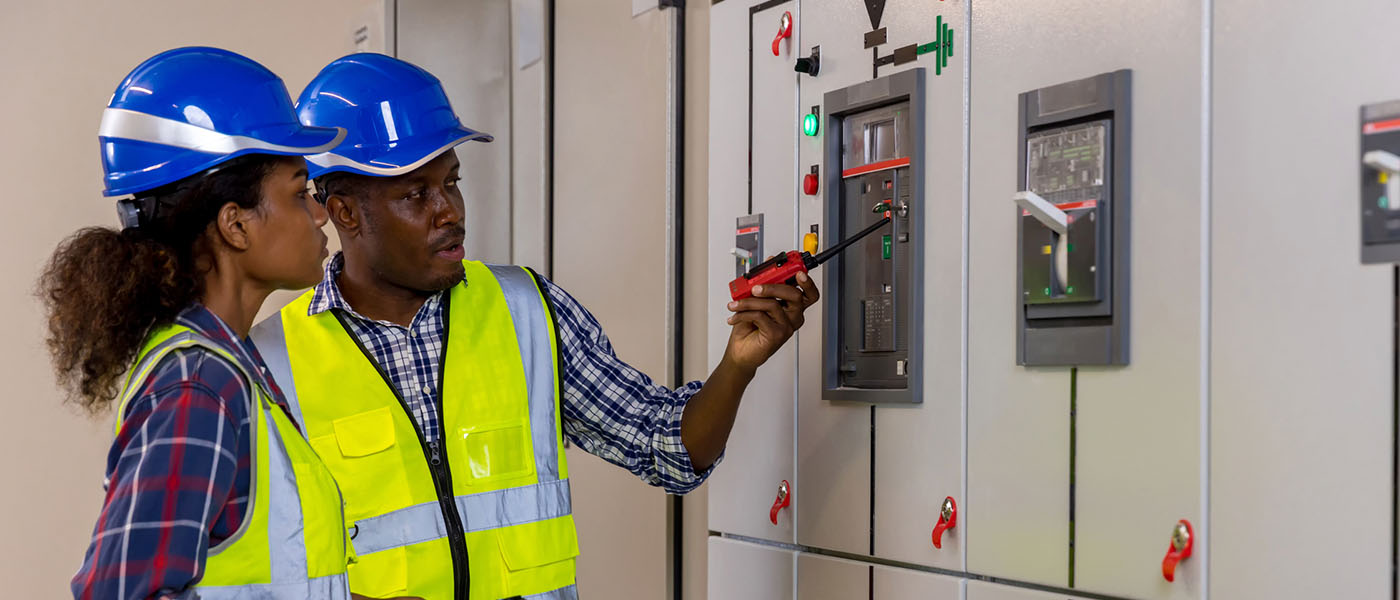Did you know that more than 100,000 fires occurred in nonresidential buildings in 2021? The ability to detect and address different signs of a fire can save lives and property — but your fire alarm system can only keep your building and its occupants safe when it works.
By conducting routine fire alarm inspections and taking other key measures, you can identify fire system hazards and maintain the integrity of your building’s system.
Why Fire Safety in Commercial Buildings Matters
No matter your business’s industry, creating a safe atmosphere for tenants, customers and employees is crucial. It’s your responsibility to put effective measures in place to protect anyone who visits your property. A comprehensive fire alarm system can play a major role in keeping patrons and staff safe, alerting them to fire hazards and assisting in mitigating fires until the authorities arrive.
These alarm systems feature various basic components that work together to detect and address fires. For example, smoke detectors and heat sensors can pickup on common fire signs, and indicating elements like bells and strobe lights warn individuals in the vicinity about said signs. This way, they can take prompt action to mitigate the fire when safe to do so or evacuate and contact local fire services.
What happens when commercial building owners don’t test and maintain their fire alarm systems? Everyone who spends time in the building is at risk of experiencing the effects of a fire. At the same time, building owners can face costly legal issues. As a result, commercial fire inspections are a necessary part of operating a business.
The Most Common Fire Alarm System Issues Detected During Inspections
A fire alarm system can be complicated and intricate, especially in larger buildings with unique layouts. Fortunately, knowing common fire alarm system issues can help you locate them faster, allowing you to make the correct fixes the first time. Through regular fire inspections, commercial building owners can detect various system issues:
- Corrosion: Depending on the building, fire alarm systems may become exposed to moisture and water, leading to corrosion and rust. These issues can cause crucial components to fail, which is a major concern in an emergency. When conducting an inspection, check for corroded or rusted parts so you can replace them.
- Dust: Though dust may not seem like it can cause much damage, dust buildup can particularly affect detection systems, causing the system to falsely trigger or fail to trigger at all. Be sure your system is clean of all debris to ensure it works properly.
- Wear: Over time, fire alarm systems will wear down with use and environmental exposure. During inspections, you should take note of visual signs of damage and test essential parts, replacing components that have worn down too much.
- Aging: If your building is several decades old, the fire alarm system may not have experienced updates in some time. An outdated system might not be up to code or feature the latest safety technology. Consider updating your fire system to ensure compliance and protection. Typically, business owners should replace systems when they’re more than 15 years old.
Conducting visual inspections yourself can help you address small issues, but you should always have a professional complete a thorough fire alarm inspection for the best results.
Legal Implications of Neglecting Fire Alarm Inspections for Commercial Properties
As mentioned, commercial fire alarm systems must comply with specific fire safety regulations. The National Fire Protection Association (NFPA) provides extensive guidelines, particularly the National Fire Alarm and Signaling Code, that commercial buildings must follow when installing and maintaining fire alarm systems. Ensuring your system meets NFPA 72 fire safety standards and your local fire code keeps you compliant and safe.
Keep in mind that inspections play a major role in maintaining compliance. When you work with an inspection team to review the system and make the necessary updates, you can avoid potential legal issues that may come with falling out of compliance, such as fines. These professionals can help you understand your legal fire safety obligations, which can vary based on your building’s location.
How to Build a Comprehensive Fire Alarm Maintenance Plan
Keeping on top of your fire system is much easier when you have a dedicated plan in place. A crucial part of your safety plan is maintenance — understanding fire alarm system maintenance and when to take certain measures can be the difference between an operational system and one that poses risks. Specifically, preventive maintenance is crucial.

With regular annual inspections, you take consistent measures to repair and improve your system, helping ensure you avoid significant malfunctions down the line. For example, regularly testing your alarms can help you locate issues with noise levels or visual cues, and you can fix them to make sure they’re loud and bright enough to properly alert occupants. In comparison, reactive maintenance can be highly costly — waiting for a part to break before you fix it defeats the purpose of your emergency system.
Depending on your system’s features, you might incorporate the following steps into your safety plan:
- Conduct a quick daily system review.
- Test one detection point weekly on an alternating basis.
- Check that fire doors open and shut correctly weekly.
- Take a few minutes weekly to ensure alarms sound properly.
- Fix any leaks in the sprinkler system and take measures to prevent pipes from freezing in cold weather.
- Check system batteries monthly and replace them accordingly.
- Verify fire extinguisher expiration dates every quarter.
- Schedule thorough professional fire system inspections yearly.
Having the right team on your side can make a notable difference in the creation and execution of your safety plan. If you aren’t sure where to begin, consult professionals to build the best plan for your specific business. This way, you can pay attention to the right parts of your system at the right intervals, allowing your business to intercept issues with ease.
Titan Alarm & Fire Is Your Partner in Fire Safety in Arizona

Titan Alarm & Fire can meet your commercial fire safety needs. Whether you’re interested in routine fire inspections or would like us to help you design, install and maintain your system all the way through, our skilled team is ready to help. Understanding fire alarm systems at a basic level can also help you look after yours better, and we’re happy to help answer your questions about how your equipment might work.
With our group of commercial building fire safety experts on your side, you can ensure compliance and create a safe environment. Explore our array of comprehensive fire and smoke protection services to learn more. Schedule a consultation today to get started making your commercial building safer!



